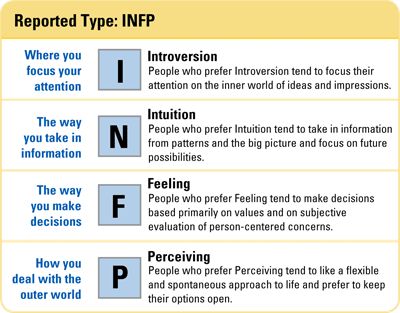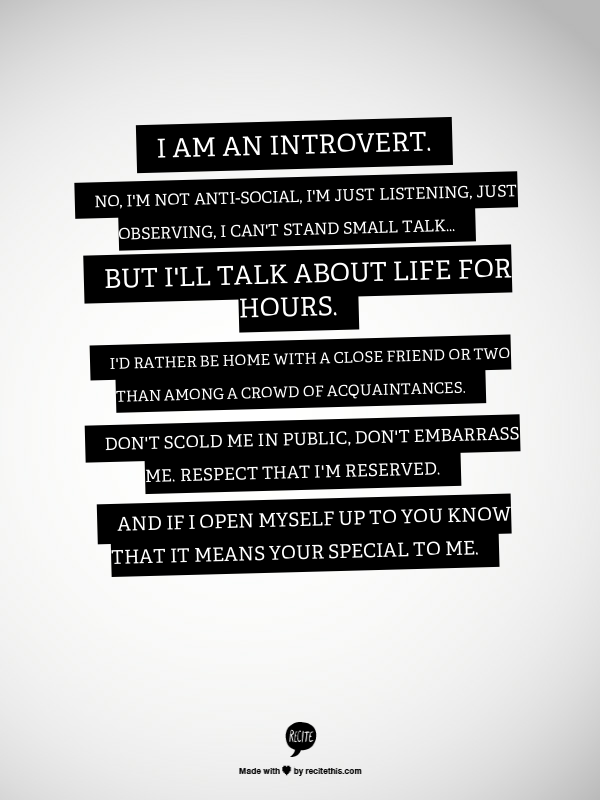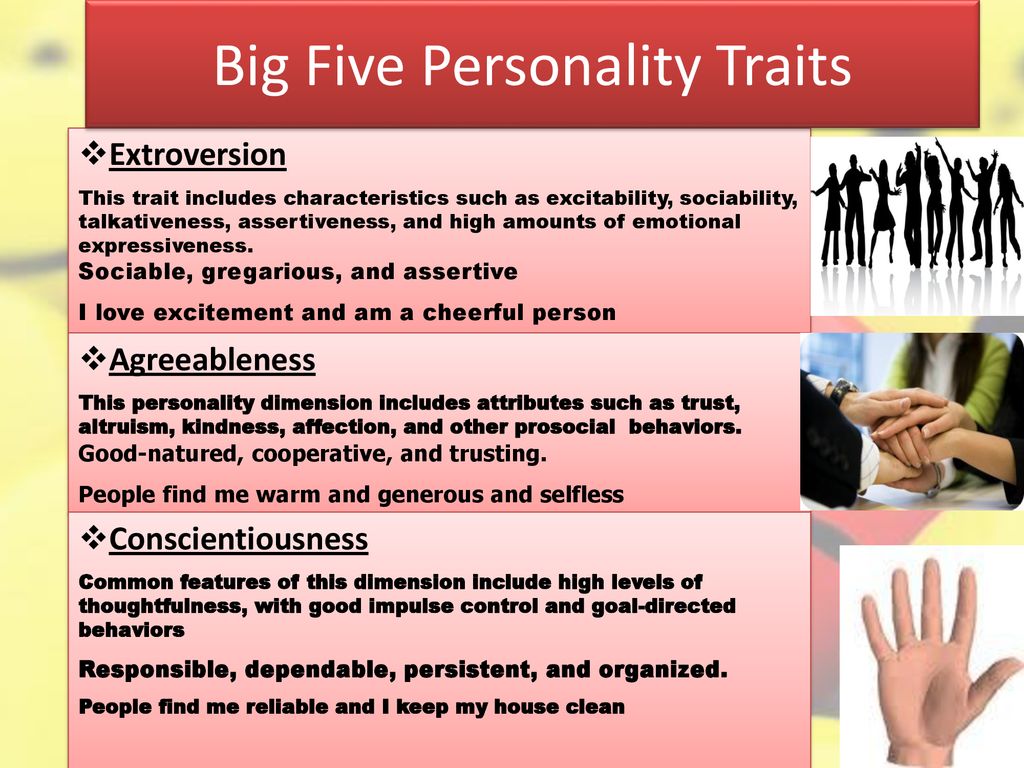Question about stress
ESL Conversation Questions - Stress (I-TESL-J)
Recognizing Stress
- What is stress?
- What causes stress?
- How do you recognize stress in your life?
- Have you been under stress recently?
- How does stress affect you?
- Do you have a kind of red warning flag that indicates too much stress?
- When you are stressful, how do you feel physically?
- Do you feel tired during the day?
- Can you sleep well at night?
- Does your stomach hurt?
- How do you feel emotionally?
- Do you feel nervous or worried about stressful situations?
- Do you get angry easily?
Helping Others
- Have you ever helped someone who was feeling stressful?
- What did you do?
- Did you give them advice?
- Did you listen to them?
- Did you do most of the talking?
- Did you take some action to help them?
- Have you ever helped someone that you didn't know?
- What are characteristics of a good counselor?
- Is it necessary to have shared the same experience?
- Is it important to be an expert?
- Is it important to be patient?
Healthy Stress
- Do you think stress is ever good, useful, or necessary?
- Why or why not?
- Do you play games or sports that are sometimes stressful?
- When can stress be a good thing?
- If you are playing a sport and your team is losing, does it give you extra energy?
- Does stress make you feel more alive?
- Is your home life stressful?
- Are you busy at home?
- Can you relax at home?
- Do you enjoy having discussions about politics with other people who have different opinions?
- Do you like to argue about different ways to do things at work or at home?
Personal
- Have you felt stress recently?
- Did the stressful feeling last a long time or a short time?
- Had the cause of the stress happened to you before or was this a new situation?
- How often do you think you feel too much stress?
- Do you feel too busy sometimes?
- In what way does a too full schedule lead to stress?
- Do you like being busy?
- If you are very busy at work or at school, do you have ways to balance your life?
- If you have nothing to do, do you enjoy yourself or do you get bored?
- Does stress make it hard for you to think or act?
- How can you judge what is the right amount of stress for you?
- Is your stress caused by relationships with other people?
- At work? At school?
- At home?
- With best friends?
- With partners?
- Can you think of some examples?
- Does stress come when you worry about your life?
- Do you keep your worries a secret from other people?
- Do you have anyone you can talk to when you are worried?
- When did we start talking about stress as a psychological condition?
- What do you do when you have stress?
Stressful Situations
- Are there situations that you find stressful?
- Do you feel tense when you meet someone for the first time?
- Do you get nervous if you have to make a speech?
- Do you suffer from stress when you have too much work to do?
- Do you work or study for long hours under stressful conditions?
- Does the place you live have a low-stress environment?
- Can you be alone as much as you like?
- Can you be with friends as often as you like?
- Is it easy for you to make decisions about important things?
- Can you relax when you are sleeping away from home?
- In what kinds of situations do you observe other people feeling stressed?
- What are some situations that you enjoy?
- What are some situations that make you feel stressful?
- How can you eliminate stressful situations?
- Plan a low stress, cheap, one day holiday.
Controlling Stress
- How do you relieve stress?
- What stresses you out?
- Do you have a stressful lifestyle?
- How can you eliminate stressful situations?
- How do you get control of a stressful situation that is getting too tough?
- What is the "fight or flight" response? How does it relate to stress?
- Do you enjoy the feeling of being stressed?
- If you are feeling stressed, what do you do?
- Do you like to relax or be active when stressful?
- Are you capable of relieving your stress or do you need help?
- Can alcohol cure stress temporarily?
Living Stress Free
- How can you live a stress free life?
- Can you give five suggestions that would be inexpensive?
- Can you give five suggestions for children?
- Can you give five suggestions for the wintertime?
- Give us suggestions for making school life less stressful.

- When stressful do you like to listen to a certain kind of music?
- Does it help to go shopping or take a long walk?
- Do you like to be alone or be with other people?
- Do you eat more or eat less?
- Do certain colors make you feel happier?
- Do you always follow the same pattern to relieve stress or do you try different things?
- What are some positive ways people deal with stress?
- What are some negative ways people deal with stress?
- How do you deal with stress?
- What is the most stressful experience you have ever had?
- When was the most stressful time of your life? Did you learn anything from that experience?
- What do you think is the greatest cause of stress for most people?
- What is your greatest cause of stress?
- Do you deal with stress differently that your parents do/did? If so, how?
- Do you know of anyone who likes to break things or become violent when they are stressed? What have they broken? What kind of violence do they do?
- What is the most stressful job you can think of?
- What is the least stressful job you can think of?
- Which would you choose: A stressful job with very high pay or a relaxing job with considerably low pay? Why?
- Is being single less stressful than married life? What are the advantages and disadvantages of each?
- How do you reduce stress in your life? Do you think they would be considered good or bad ways of dealing with stress?
If you can think of another good question for this list, please add it.
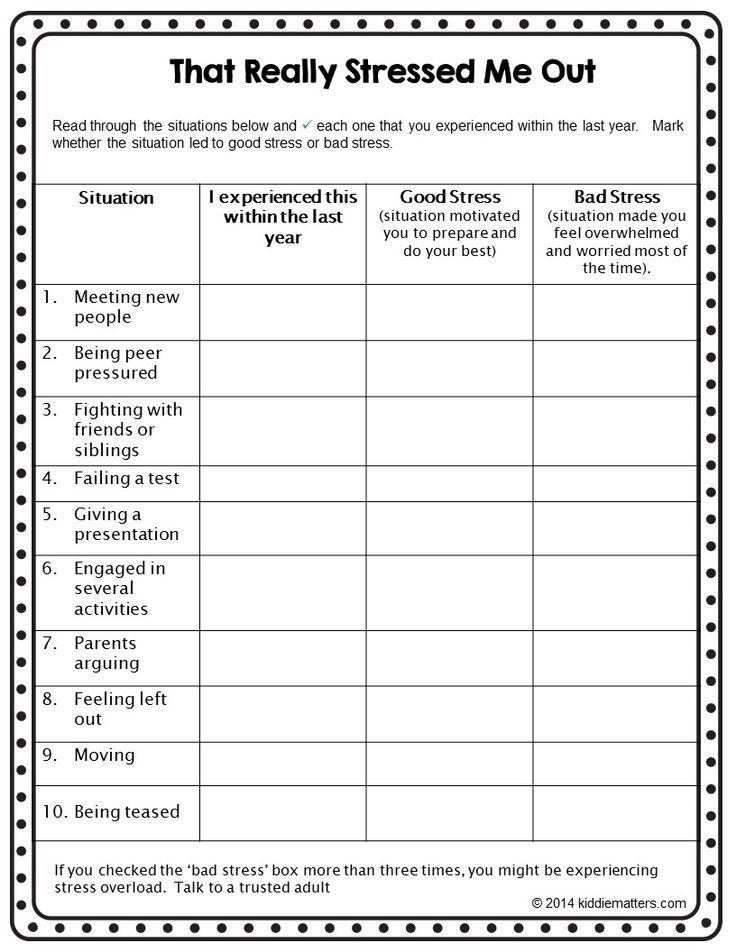
http://iteslj.org/questions/
Copyright © 1997-2010 by The Internet TESL Journal
All Your Questions About Stress Answered
What causes the most stress?
Everyone experiences stress differently. What aggravates you may not make your neighbor blink an eye. So while you’re the only one who can say what causes you the most angst, data has shown that certain things consistently stress many people out.
According to the American Psychological Association’s Stress in America 2021 report, U.S. adults are most stressed out about:
- work
- money
- the economy
- family responsibilities
- health concerns
How can I avoid or reduce stress in my life?
No one can avoid stress 100% — and you probably wouldn’t want to anyway. Stress can be healthy when it isn’t long lasting.
But it’s important for your well-being to know how to manage and reduce stress (and its negative consequences) when it comes up or is sticking around too long.
Consider some of these options to manage your stress:
- take breaks
- exercise (your body is ready to run anyway, right?)
- meditate or practice breathing techniques
- plan some “me” time
- vent if it helps you
- improve your sleep
- try complementary medicine practices like acupuncture, acupressure, or biofeedback
- journal
- listen to soothing music
- express yourself with art
- use aromatherapy (aka essential oils)
- set boundaries when needed
- try foods, teas, or supplements that may help with stress
When you’re amidst a stressful moment, the first thing you may want to try is to pause, take a breath, and check in with yourself. How are you feeling? What can you do right now to cope?
If you want to prepare for stress — not to prevent it but to cope better when it happens — you may want to ask yourself these questions and use the answers when stress comes up:
- Who can I turn to for support? Who should I avoid?
- What do I need to feel good or calm down?
- What can I deprioritize to make my load a little more manageable?
- How can I productively express myself?
- What grounds me in the present moment?
What influences stress?
Many factors can influence you to feel stressed or cause stress that’s harder to manage, such as:
- big life changes (especially with work, relationships, and moving)
- feeling under a lot of pressure
- feeling out of control or overwhelmed
- discrimination
- being in an uncomfortable situation
- having several minor stressors occur all at once
- feeling less supported or low on resources
- feeling distressed from world events and threats
Why am I always stressed?
With worldwide uncertainty, worries about money and the economy, and a neverending supply of things to doomscroll, you’re probably feeling overwhelmed.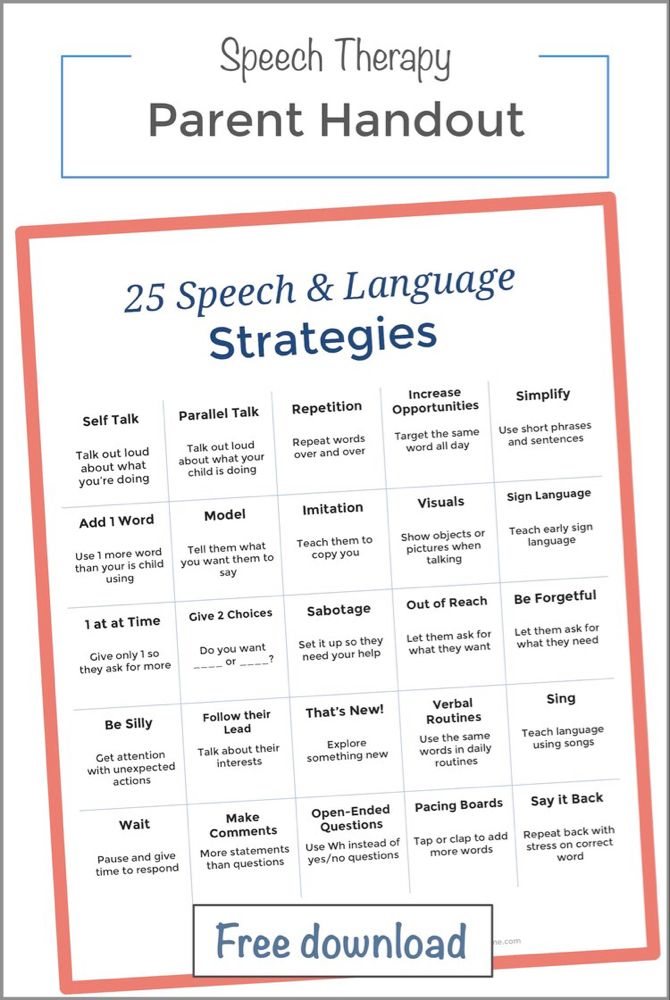
Right now, it might feel like there’s never a moment when you’re not stressed about something. You’re not alone in this. According to an international Gallup survey, 4 in 10 adults feel stressed out a lot.
At least 41% of U.S. adults report that they have more stress now compared to before the COVID-19 pandemic.
There are many things to feel stressed about (see causes and influences above). If you’re always feeling stressed, know that there are many things you can do.
What are the physical effects of stress?
Many people think of stress as a “mental” thing, but it can affect you physically, too.
Depending on how long the stress lasts, the physical effects of stress may include:
- body tension or pain
- increased heart rate
- headaches or migraine attacks
- acne or other skin problems
- breathing difficulties, especially for people with conditions like asthma or chronic bronchitis
- high blood pressure
- stomachaches, bloating, nausea, or changes in bowel movements
- changes to blood sugar, especially for people living with diabetes
- fertility issues
Lots of stress over a long time can also contribute to developing or worsening mental health conditions, which come with their own physical symptoms.
Can you be stressed without feeling stressed?
If your body never gets to turn off its stress response, stress might start feeling different for you — which means you might not feel like you’re stressed. At least not in the same way.
We often think of stress symptoms involving activation: fighting or running. But stress that sticks around can start to exhaust your body and lead to:
- tiredness
- tension pain
- an inability to focus
- a lower sex drive
- depression
If you have other health conditions, your symptoms of these conditions may worsen. So you may not “feel” stressed because you’re too distracted with managing your other symptoms.
Some people even develop a fawn response to stress. Like the fright response, the fawn response confronts the stressor — but with appeasement instead. Think: Giving in to demands to end a siege of pressure.
Am I feeling stress or anxiety?
Stress and anxiety are both natural, and most folks experience them.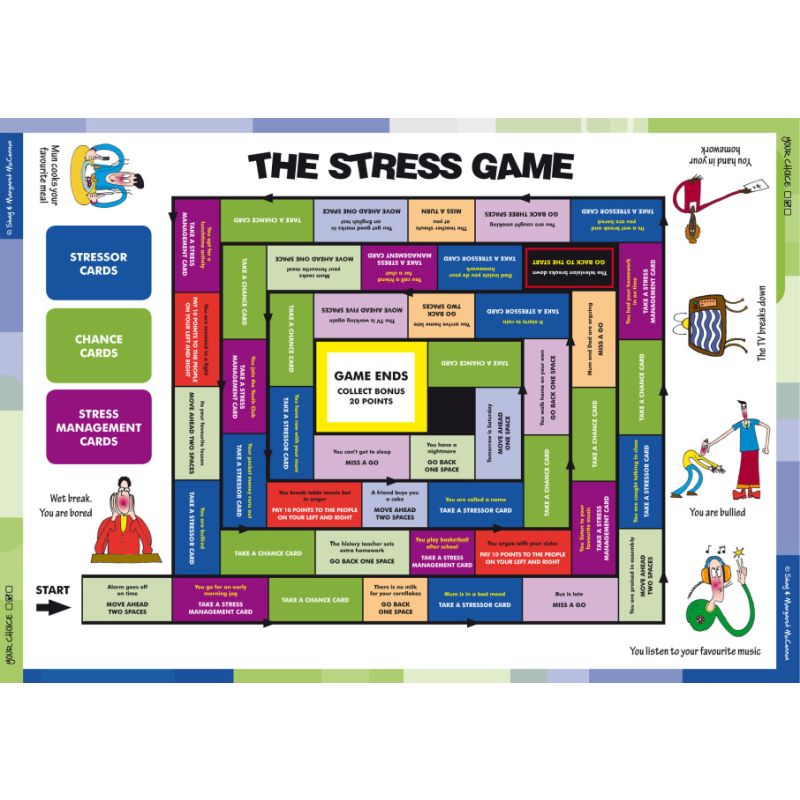 It can sometimes be hard to tell the difference — but there is some overlap.
It can sometimes be hard to tell the difference — but there is some overlap.
Both stress and anxiety can lead you to:
- worry
- feel tense
- have headaches, stomachaches, or body pain
- lose sleep
Typically, stress and anxiety are divided up by the cause, the duration, and the impacts they have. According to the National Institute of Mental Health, these are some differences between stress and anxiety:
| Stress | Anxiety |
|---|---|
| generally due to an external cause | generally due to an internal cause |
| often goes away once the stressor is over | can linger and interfere with your daily life |
| can have good effects (increased productivity) or bad ones (affecting your sleep) | sometimes is present even when there’s no immediate threat or stressor |
What can I do for someone who’s experiencing a lot of stress?
One of the most important things you can do for anyone under stress is actively listen.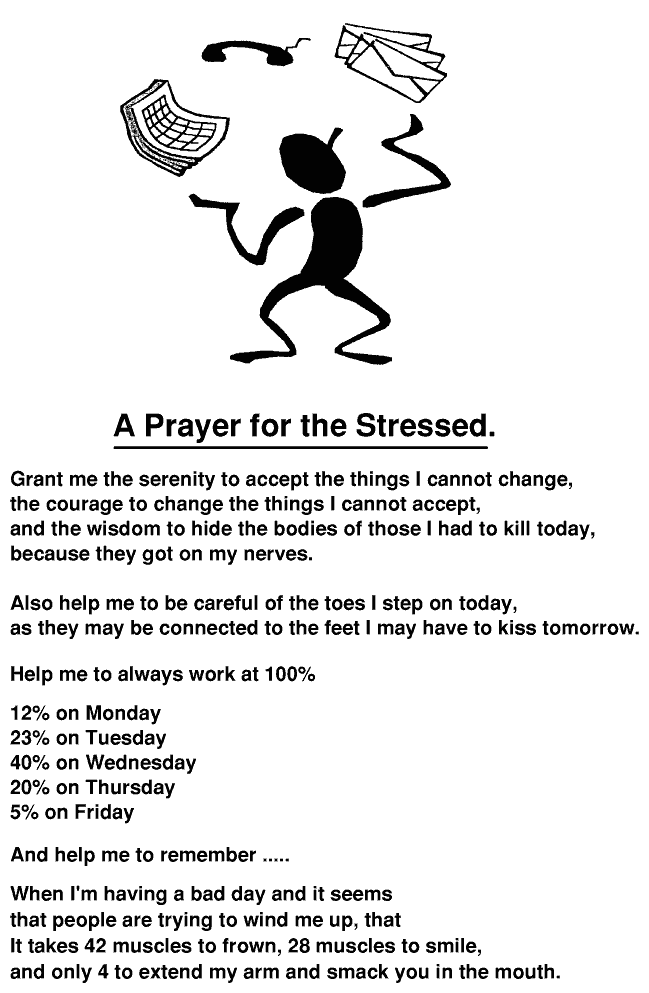 Just talking about stressful things can relieve angst from the mind and tension from the body.
Just talking about stressful things can relieve angst from the mind and tension from the body.
So consider holding onto any advice until they ask for it and listen. You can also tell your person that you’re there to help them if they need extra support right now.
If they’re having trouble talking about their stress or stressors, you could try asking them some of these questions:
- Has anything been frustrating you lately?
- Have you been under a lot of stress lately?
- What does stress feel like to you? (Physically and emotionally)
- Is your home life, work life, or relationship currently stressing you out?
On the flip side, you may want to follow it up by asking them when they last felt most relaxed so they can focus on something positive after discussing their stressors.
Stress is a part of being human (however bothersome it may be!). A little stress can even be a good thing, but a lot of stress or stress that persists can start to interfere with your overall well-being.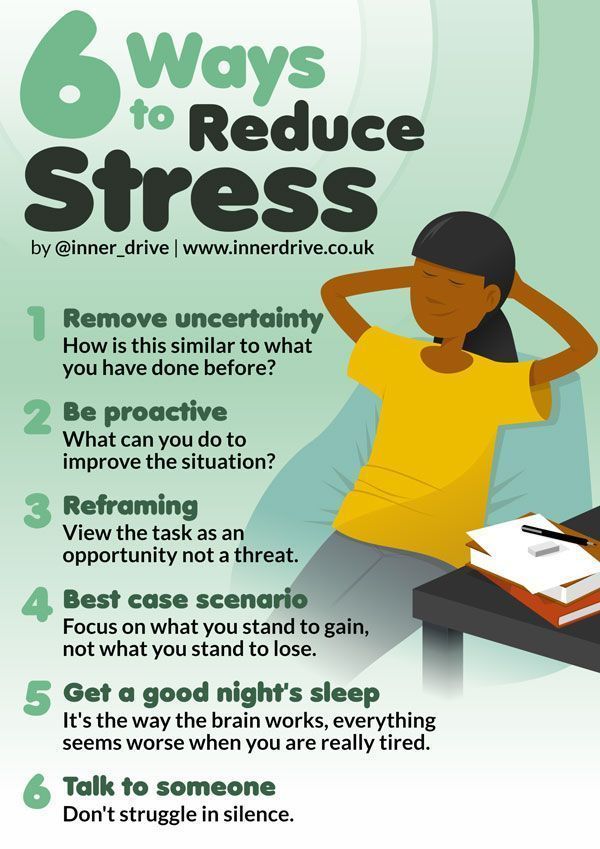
By understanding what’s causing your stress and learning coping strategies that work for you, you can get to the other side of stressful moments. You may want to talk with a therapist if you need more support.
If you’re interested in learning how stressed you are, you can take Psych Central’s quiz.
Stressful interviews and stressful questions — TSTM based on TVSU
Stressful job interviews cause the most emotions among job seekers, although in reality it does not occur very often. True, almost every interviewer includes elements of this type of interview in a conversation with the applicant. There is only one way out - to know what to expect, and to train stress resistance. So let's get ready!
What to prepare for?
You will be tested for stress tolerance. Stress resistance is your stereotype of behavior in conditions of informational, emotional or physiological stress.
What is the purpose of using this technique?
- To see how you behave in situations of stress.
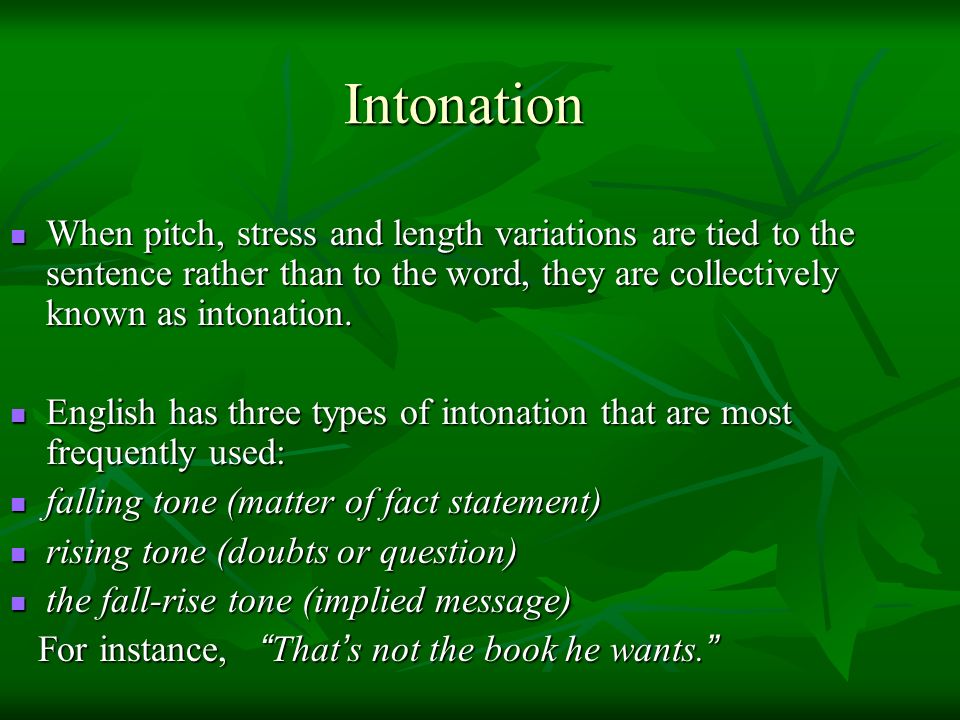
- Understand what will be a stressful situation for you.
- Determine how your behavior changes in non-standard situations.
- Assess how you control yourself in conflict situations.
- Test your resistance to rude, "boorish" behavior, the ability to "swallow insults".
Applicants for which positions?
- Sales employee.
- Bank employee.
- HR manager.
- Account Manager.
- Advertising manager.
- Insurance agent.
- Service worker.
- Public Relations Specialist.
- Psychologist.
- Journalist, reporter.
- Live broadcast host.
- Office manager.
- Head.
In what form is it carried out?
You are asked stressful questions or offered to find a way out of a given stressful situation.
Questions cause stress due to surprise, illogicality, complexity.
Examples of stressful questions to determine the degree of professionalism of the candidate:
- What can you offer our company? Why should we hire you?
- Give an example of a situation where you showed quick reaction.
- How do you react to situations when you are under psychological pressure during work? Give three examples of "working under pressure" from your own practice.
- What salary do you deserve? Why?
- How long will it take you to contribute to the development of our company?
- Describe a situation where your work was criticized.
- Are you considering other options to further develop your career?
- What would you say if I regarded your presentation today as very weak and uninteresting?
Examples of unexpected/absurd questions to test stress resistance and responsiveness:
Question: Why is the earth round? Sample answer: The circle is a symbol of perfection, so the earth simply cannot have another shape.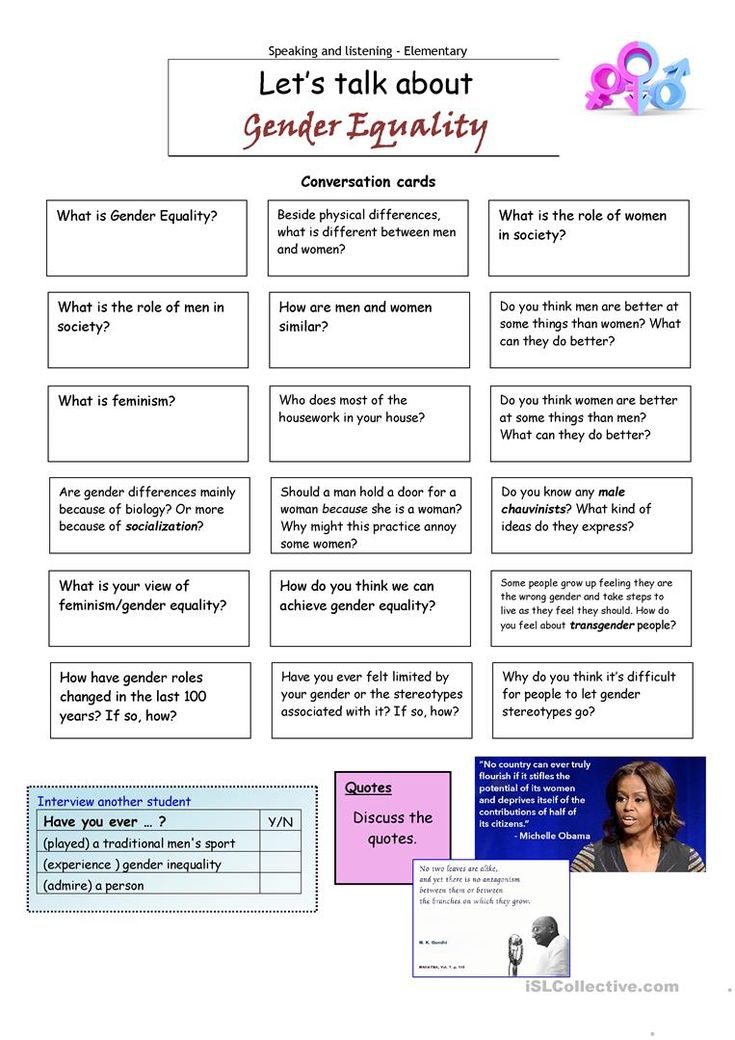
Question: What is puff-naf-nuf? Sample response: This is what I call my cat when he lingers outside.
Question: What does the earth stand on? Answer example: Philosophical question. What the philosophers put it on is worth it.
Question: Why do bears sleep in winter? Sample answer: They get very tired in summer.
Question: Think of 10 ways to sell a live crocodile. Answer example: I have already invented and patented. The information is strictly confidential.
Question: Cheburashka - is he or she? Answer example: Ouspensky has him.
Examples of stressful personal questions:
- Are you single? And why?
- When do you plan to start a family, give birth to a child?
- Why didn't you serve in the army?
- What diseases do you suffer from?
How to answer stressful questions:
- Prepare in advance to answer questions about your career prospects, professional qualities, strengths and weaknesses.
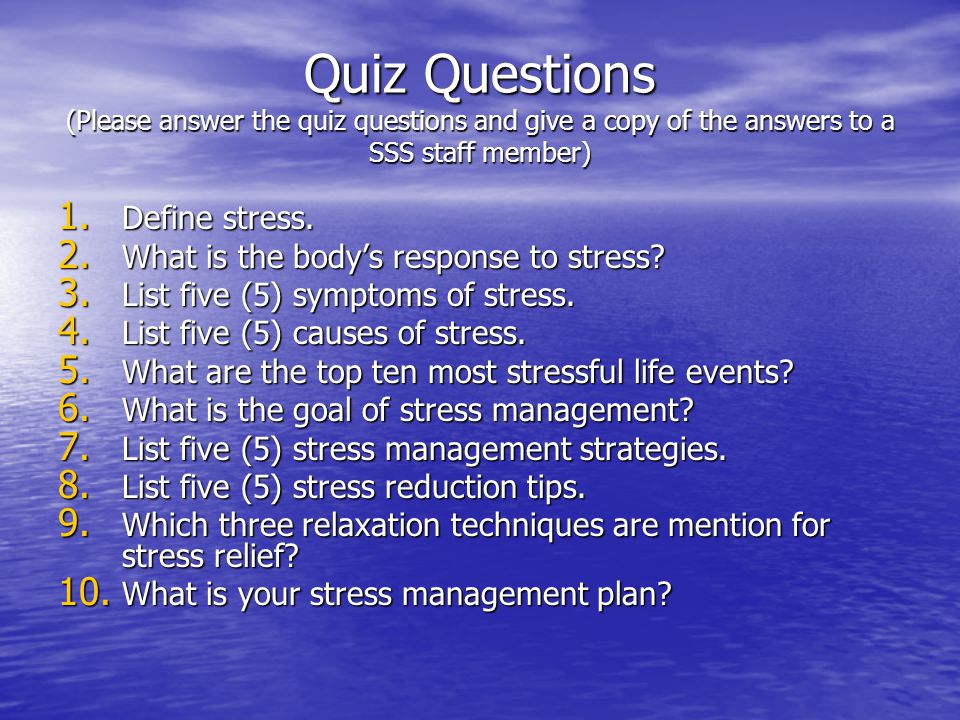 Think of examples.
Think of examples. - Answer briefly and clearly.
- Do not be afraid of unexpected questions. The goal is not to test your knowledge, but the speed of reaction.
Stress situations are artificially created for you.
Examples of stressful situations:
If after the interview you are not apologized for such an unusual way of conducting an interview, you should consider whether you want to work here.- You are deliberately made to wait for an interviewer from 30 minutes to 1 hour.
- Several people are talking to you at once, sitting in different places, creating a situation of cross-examination (“good” and “evil” investigator).
- The interviewer abruptly changes the pace of speech, the volume of his voice.
- The interviewer does not look at you during the interview, doing other things for show.
- The interviewer does not allow you to insert a single word in order to test your patience and ability to listen and highlight the main thing.
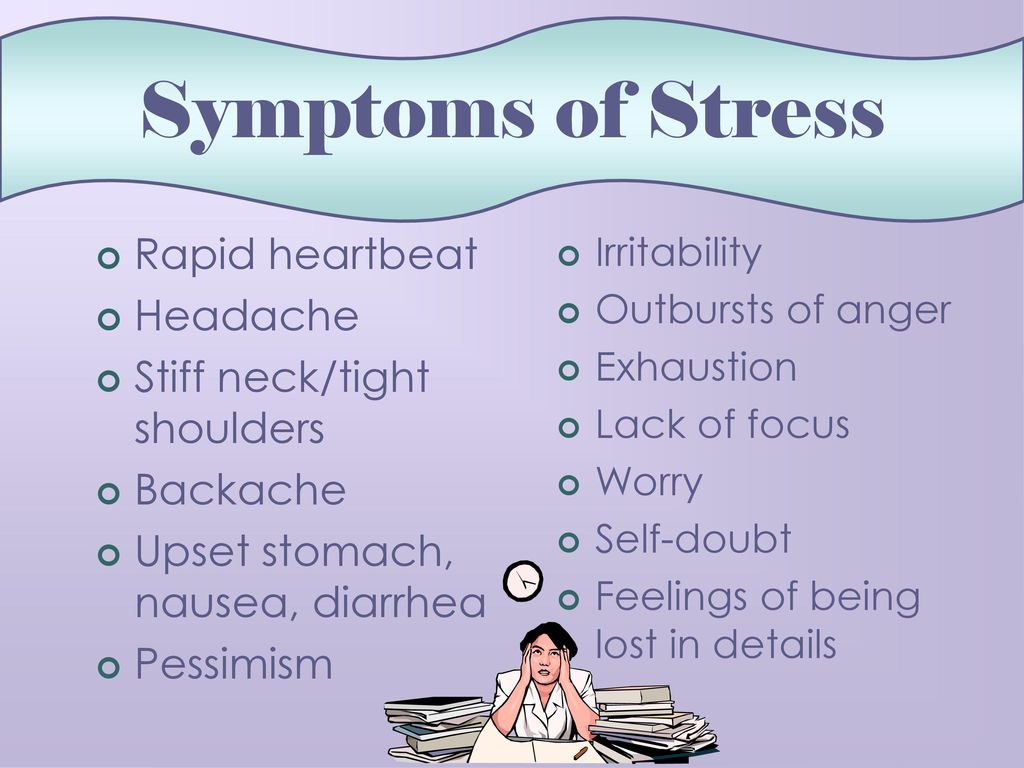
- They are trying to hurt you, to piss you off. Your choice of university and previous jobs are questioned, they talk about your personal life without a shadow of embarrassment. You are forced to make excuses.
- The interviewer abruptly interrupts the interview and leaves you without explanation, and after a while returns and continues to ask questions.
- The interviewer switches abruptly from one topic to another.
How to behave in a stressful interview?
- Tune in to the fact that a stressful interview is a kind of game that has its own rules. In this way, you are simply checked in order to obtain maximum information about a potential employee in a short time.
- No matter what, stay calm and friendly.
- Answer the questions, not the provocation. Feel free to make constructive arguments in your defense.
- Take the lead. You are accused of choosing the wrong profession - ask what profession the interviewer would advise you to do.
 You are told that you are avoiding the answer - say that you are only avoiding conflict.
You are told that you are avoiding the answer - say that you are only avoiding conflict. - Don't be afraid to state that your personal life has nothing to do with your professional activities and therefore you are not going to discuss it at the interview. Say it calmly and without aggression.
- If you feel irritated, take a break - take a deep breath and count to ten.
- If the interviewer is not looking at you, but sorting through the papers or buried his head in the monitor, just shut up and wait until he pays attention to you. If you are confident in yourself, then take the initiative in your own hands by asking a question that interests you.
- If you think that the interviewer has crossed all acceptable ethical boundaries, you can safely leave the walls of the office.
- If, after the interview, you do not get an apology for such an unusual way of conducting an interview, it is worth considering whether you want to work here.
Do you want to learn how to calmly answer stressful questions and pass stress interviews?
Take our trainings!
What is a stress interview, sample questions
From time to time, recruiters need to fill vacancies where increased stress resistance is required. To test this skill, the stress interview format is sometimes used. Let's analyze its basic principles that will help determine the right candidate who will be ready to take up his duties without turning gray after meeting with a recruiter.
What is a stress interview and what is its essence
A stress interview is when a situation is simulated during an interview that creates a tense background and discomfort for the candidate. The goal is to break his balance and see how he behaves in aggressive conditions.
Thus, the recruiter tries to understand:
- how the applicant adapts to stressful circumstances;
- that can piss him off;
- how the applicant's behavior "before" and "after" is transformed;
- how ready he is to show flexibility and patience;
- level of self-control;
- resistance to roughness;
- talent to find a non-standard way out of a situation, etc.

As a result, the main task of such an interview is to check the "protective" abilities of the candidate, which are important for the announced vacancy.
Which candidates are invited for stress interviews
This format can be used to find:
- executives,
- Sales Professionals,
- service workers,
- top management secretaries and assistants,
- other professions requiring a high level of stress tolerance
Also, if the vacancy is related to voluminous communication work (politics, mass media, public relations), interspersing stress elements into the interview outline can help to figure out how prepared the future employee is for surprises, non-standard situations and other factors that will happen one way or another. be present in his daily work.
7 rules for a stress meeting
Interview formats with hysterical antics of the interviewer, orders to sell the elephant, emphasized boorish behavior in the past.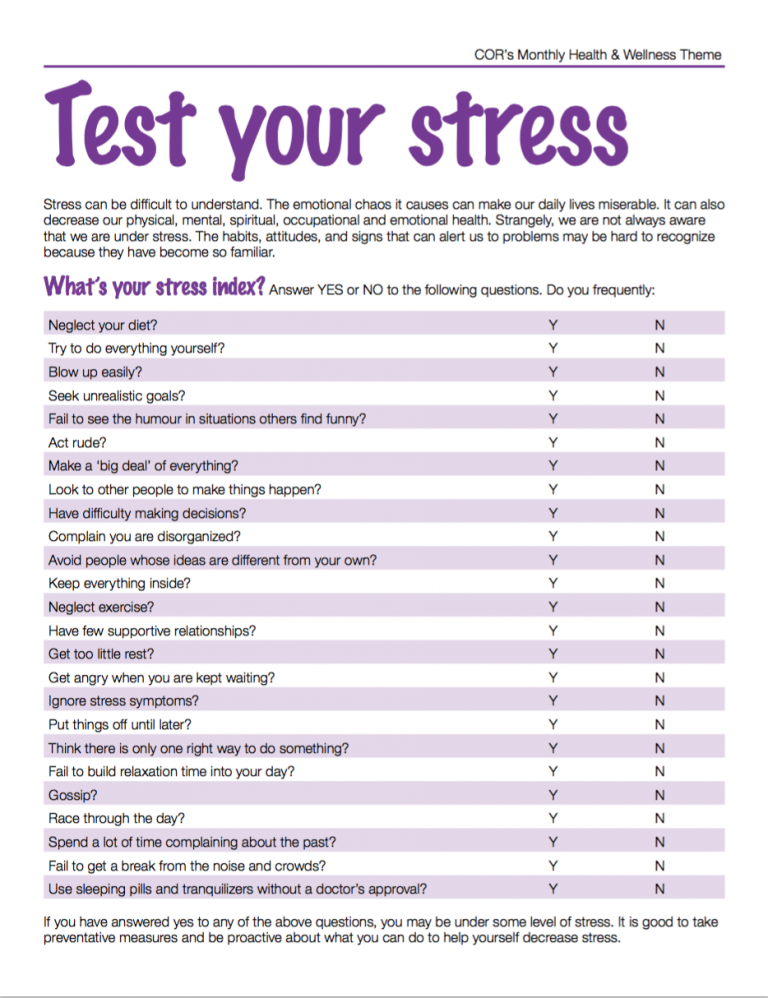 Yes, and today at such meetings, uncomfortable and provocative questions are allowed, nervous chaos is artificially created (someone always interferes, calls the interviewer, roams into the negotiation room where the candidate is, etc.). But when uncontrollable rudeness and criticism falls upon the candidate, the interviewer is very late, because he “forgot”, or asks to sit on a broken chair - this is already beyond.
Yes, and today at such meetings, uncomfortable and provocative questions are allowed, nervous chaos is artificially created (someone always interferes, calls the interviewer, roams into the negotiation room where the candidate is, etc.). But when uncontrollable rudeness and criticism falls upon the candidate, the interviewer is very late, because he “forgot”, or asks to sit on a broken chair - this is already beyond.
In its purest form, stress interviews are rare today. Experienced recruiters choose a “mix”: if necessary, they combine stress inclusions with other formats, such as DISC or STAR.
At the same time:
- from the very beginning, you need to clearly define the level of stress resistance that the candidate needs for this position. This condition will help to prepare questions or situations that will not exceed the degree of communication and will allow you to see the essence;
- Stress questions are not advised to be asked at the first meeting with the candidate.
 It is better to get to know the applicant better in a neutral atmosphere, talk about the position, how the company lives, make a good impression;
It is better to get to know the applicant better in a neutral atmosphere, talk about the position, how the company lives, make a good impression; - on the eve of the stress interview it is better to inform the applicant that a non-standard conversation is planned;
- it is important to control the psychological pressure without turning the meeting into an interrogation;
- questions should be asked, gradually increasing the degree, mixing open and closed questions; closed - to formulate quickly, without leaving a long pause for reflection;
- 15-20 min. for a stress test - quite enough to "consider" the candidate;
- do not forget to apologize to the candidate after, explain what it was and for what purpose, and remember that at any touch, the applicant also draws conclusions and leaves feedback (about the recruiter and the company).
Interview stress tricks
- When a recruiter/HR is late for an interview.
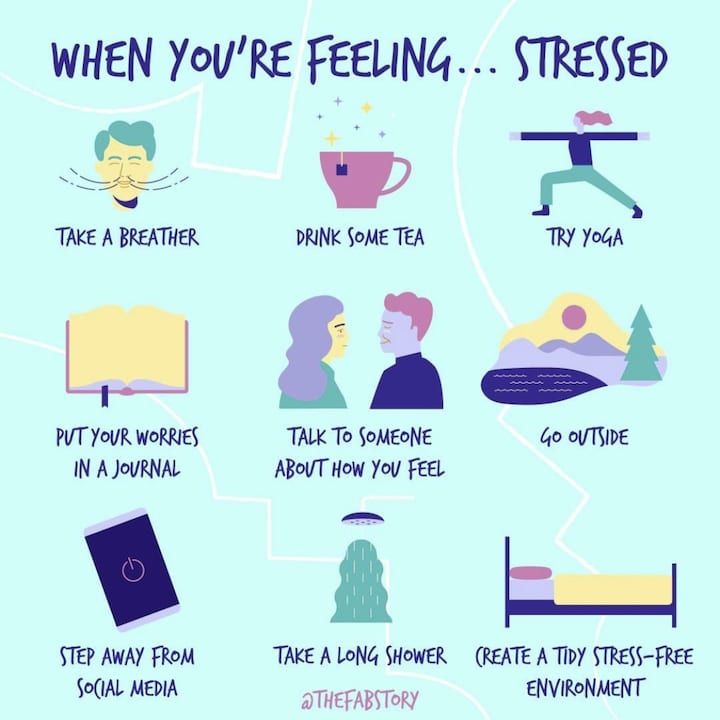
- When a recruiter talks on the phone for a long time during a meeting.
- Unexpected transition to the familiar "you" during a conversation.
- Physical discomfort: the room is noisy, too hot or cold, too bright or dark, etc.
- Questionnaires with a large number of questions of the same type.
- Panel interview (meeting with two or more representatives of the employer) in a very dynamic mode, with many questions from each participant and a minimum of response time.
- Carousel method. When a candidate starts communicating with one recruiter, a second one comes through a pause, a third one, and everything starts all over again.
- Frequent interruption of the interlocutor and vulgar comments like “Do you really consider this a success?”, “What nonsense!”, “I see you are having communication problems”, etc.
Sample stress interview questions:
- Do you really think that your experience allows you to count on such a salary?
- Are you sure that your competencies are still up to date?
- Am I (ie the recruiter) good at talking to you?
- Why don't you have anything to say?
- What did your manager really think about you?
- Have you ever been fined for shoplifting?
- How many rabbits will fit in this office?
But… there are also relatively peaceful methods:
- For example, please complete the test in a very modest time.
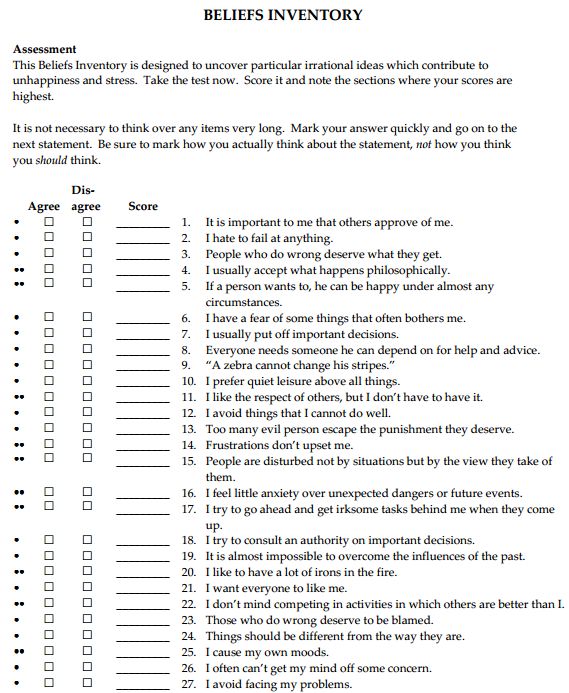 For many, this is a challenge, a test of patience, composure and self-control.
For many, this is a challenge, a test of patience, composure and self-control. - Instead of a harsh "interrogation" you can have a friendly but rhythmic conversation with two team members - this way you can see how well the applicant "manages" to switch and interact with both.
Indirect markers of stress resistance
- Acquaintance. You can analyze and evaluate how the candidate "feels" at the first meeting. If you worry for too long and groundlessly, it means that you are too sensitive to the situation.
- Eye contact. Often, applicants who often look away, hide their eyes - have an increased level of shyness, which very often affects stress resistance.
- Experience of stress. Invite the candidate to recall his greatest stress that he experienced this year and how it felt. If a person talks about it with restraint and controlling emotions during memories, then it is quite possible that he will successfully cope with stress challenges in the workplace.

Ethics
Every interview is always stressful for the applicant. Even elementary questions are not easy for everyone. What can we say about provocative? In such a situation, the recruiter should feel the measure and the "red lines". It is allowed to ask absolutely everything about the candidate's previous experience, both successful and negative, about the relationship with the team in general and with the leader in particular. The main thing is that this information should give the recruiter food for thought and benefit.
Taboos: features of appearance, race, religion, sexual orientation, etc. - anything too personal.
Pros, cons and conclusions
Among the advantages of a stress interview is the opportunity to see and evaluate the applicant and his reaction in a stressful situation. In most cases, a person in such an interview behaves and manifests himself completely differently. But - only if this meeting is held professionally. You need to know not only how to dip a candidate into stress, but also how to get him out of there.
